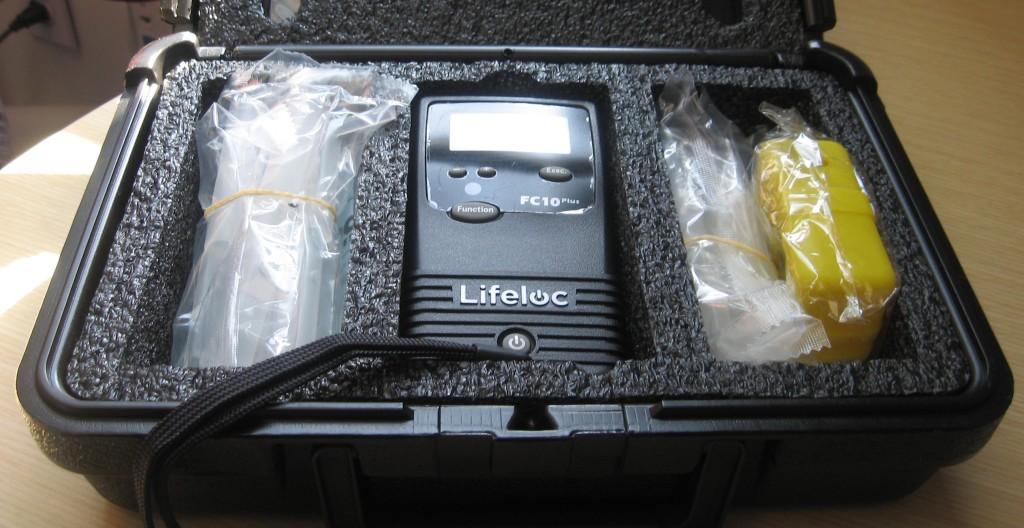Charlotte Worsley, assistant head of student life, announced on Monday, Nov. 28, at an all– school meeting that every Urban student who attends a dance will be breathalyzed to determine if they have been drinking alcohol. According to Worsley, the decision to use breathalyzers for all Urban students was made in order to eliminate biases, so that students cannot be singled out if they look suspicious.
Simone Hudson (’12), feels like the new policy is unfortunate but reasonable. “I think it’s sad that we are at the point where Urban feels like (it) can no longer trust the student body,” she said. However, “based on the information I have heard, this policy is justified.”
Sophie Ernst (’13) thinks the policy will not solve the underlying problems. “It’s a school, so they have to be responsible for student safety, but I don’t think breathalyzing kids one night a year will address the issue of underage drinking.”
Clarke Weatherspoon, freshman and sophomore dean, thinks the breathalyzer policy will create a safer place for students at dances where they will “not be pressured or taken advantage of.”
Six years ago, a group of Bay Area schools began to discuss and implement a breathalyzer policy. Urban was part of the discussion but at that time chose not to use breathalyzers.
The decision to implement the system was made by Worsley and Mark Salkind, head of school, though they also consulted the student committee. Worsley did not want to take a vote in the student committee when she knew that the students ultimately would not be the ones to make the decision.
Every student who attends the next dance on Jan. 6 will be breathalyzed so that faculty chaperones don’t have to single out students who appear as if they have been drinking.
This isn’t how it works at other Bay Area schools, though.
“(Breathalyzing) is random at the door, and by suspicion,” said an anonymous Lick-Wilmerding High School junior. “It’s like the fear factor that you’ll be the one picked.”
Out of all of the San Francisco schools that use breathalyzers, none seems to have problems getting students to come to the dances. According to the Lick junior, “people still go, but have the attitude of ‘it’s not as fun.’”
However, an Urban student disagreed. “No one is going to show up” to dances where students are breathalyzed, says Will Rothman (’13). “It will be less fun, more like a bar mitzvah.”
Some students feel like the breathalyzer policy will do more harm than good. “I disagree with the breathalyzer policy because I believe it will encourage students to experiment with other drugs. Having a breathalyzer only addresses alcohol,” says Roberto Quadra (’12).
“The breathalyzer will force students to use harder and more harmful drugs because they are not detected in the breathalyzer,” agreed Minna Ocker (’12). “It undermines the trust between the teachers and students.”
Weatherspoon disagrees. “(From) one drink to heavy drugs is a big leap,” he said. Also, “enough students have shown up to enough dances drunk that trust is violated.”
Worsley hopes that the Breathalyzer policy will “make the dances more fun for students who don’t drink (and) for chaperones who can be there to support students instead of having a suspicious stance. And as for students who usually do drink, they won’t have to be anxious wondering if they will be caught.”
“Seeing my students under the influence makes me feel uncomfortable because I am responsible,” says Weatherspoon.
Hudson agrees with Worsley. “I’m going to go to the next dance because I think it will be more fun.”
“If you don’t drink it’s not a problem,” says Elise Ong (’12). “I’m glad they decided to implement a breathalyzer policy rather than cancel prom because that would punish people who haven’t violated Urban’s trust.”

